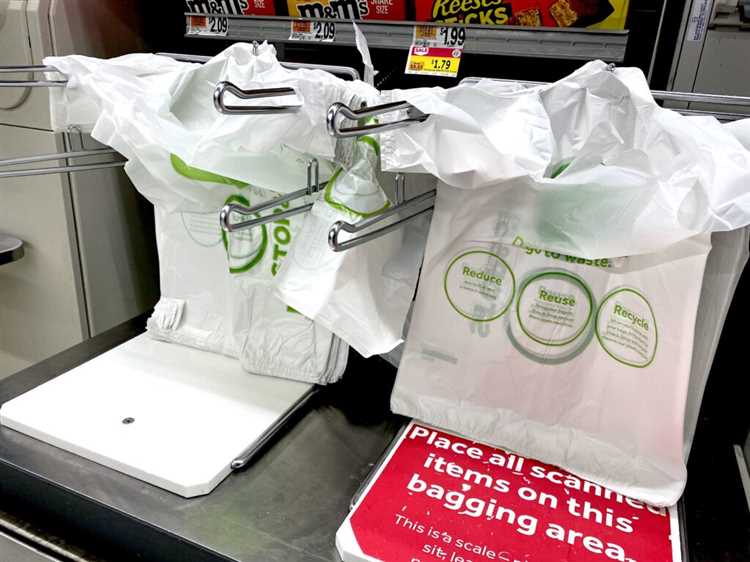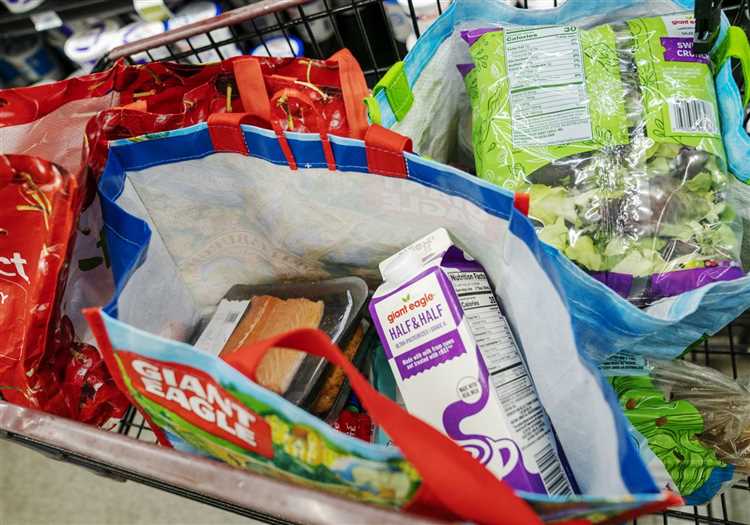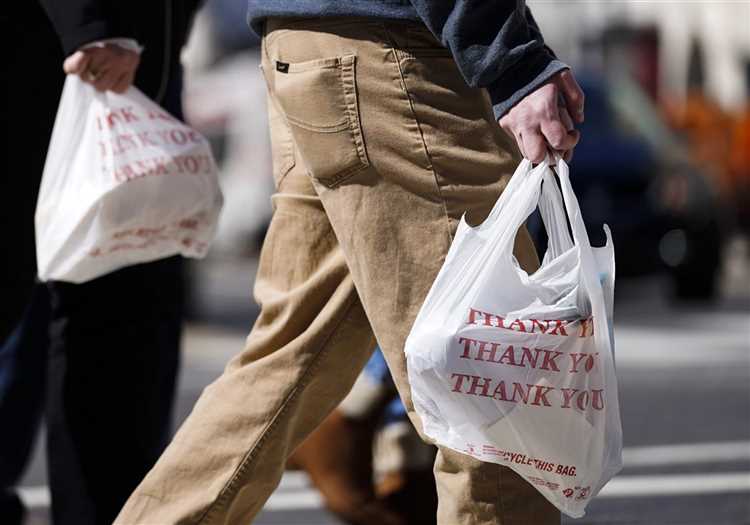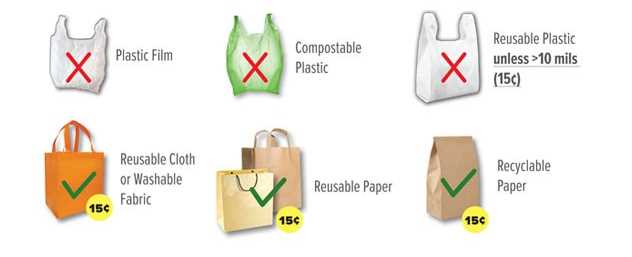Plastic bag bans have become increasingly common in recent years, with many cities and countries around the world implementing regulations to reduce plastic waste. While these bans are often seen as a positive step towards a more sustainable future, there are concerns about their potential impact on food safety.
Plastic bags have long been used in the food industry to package and transport products, providing a convenient and cost-effective solution. However, the environmental impact of plastic waste has led to a push for alternatives, such as paper or reusable bags. While these alternatives may be better for the environment, there are questions about their suitability for food safety.
One concern is that paper bags may not provide the same level of protection as plastic bags. Plastic bags are impermeable to liquids and can help prevent contamination from outside sources, such as dirt or bacteria. Paper bags, on the other hand, are more porous and may not offer the same level of protection. This could potentially increase the risk of foodborne illness.
Another concern is the potential for cross-contamination. Reusable bags, which are often made from fabric, can be a breeding ground for bacteria if not properly cleaned and maintained. If these bags are used to transport raw meats or other potentially hazardous foods, there is a risk that bacteria could be transferred to other items, increasing the risk of foodborne illness.
It is important to note that not all plastic bag bans are created equal. Some regulations allow for the use of specific types of plastic bags that are deemed more environmentally friendly or have undergone testing to ensure they meet certain safety standards. Similarly, reusable bags can still be used safely if they are properly cleaned and maintained.
Overall, while plastic bag bans may have a positive impact on reducing plastic waste, it is important to consider the potential implications for food safety. It is crucial for regulators, businesses, and consumers to be aware of these concerns and take appropriate measures to ensure the safety of our food supply.
- An Overview of Plastic Bag Bans
- Potential Risks to Food Safety
- 1. Contamination from Reusable Bags
- 2. Inadequate Packaging Protection
- Current Research Findings
- Steps Taken by Food Industry
- 1. Adoption of alternative packaging materials
- 2. Implementation of food handling and storage protocols
- Consumer Awareness and Education
- Understanding the Risks
- Exploring Alternatives
- Q&A:
- What are the potential risks to food safety from plastic bags?
- How do plastic bag bans impact food safety?
- What precautions can I take to ensure food safety when using reusable bags?
- Can plastic bags be recycled to reduce their impact on food safety?
- Are there any alternatives to plastic bags that are safer for food handling?
- How do plastic bag bans impact food safety?
- What are the potential risks of plastic bag bans on food safety?
An Overview of Plastic Bag Bans

Plastic bag bans have been implemented in numerous cities and countries around the world as a means of reducing waste and protecting the environment. These bans aim to encourage the use of reusable bags and discourage the reliance on single-use plastic bags.
Many plastic bag bans are implemented at the local level, with individual cities or municipalities passing legislation to restrict or completely eliminate the use of single-use plastic bags. In some cases, entire countries have implemented nationwide bans on plastic bags.
The primary motivation behind plastic bag bans is the desire to reduce the negative environmental impacts associated with single-use plastic bags. These bags are made from non-biodegradable materials, which means they can take hundreds of years to decompose in landfills. Additionally, many of these bags end up polluting waterways and harming marine life.
By banning plastic bags, communities hope to encourage consumers to opt for more sustainable alternatives, such as reusable bags made from materials like canvas or recycled plastics. These reusable bags can be used hundreds or even thousands of times before they need to be replaced, significantly reducing the waste that ends up in landfills.
While the benefits of plastic bag bans are primarily focused on the environment, there are also potential food safety implications to consider. Some studies suggest that reusable bags may harbor bacteria if not properly washed and cleaned. It is important for individuals to practice proper hygiene and regularly clean their reusable bags to minimize any potential food safety risks.
Overall, plastic bag bans are a proactive measure taken by communities to reduce waste and protect the environment. By encouraging the use of reusable bags and eliminating single-use plastic bags, these bans have the potential to make a significant impact on reducing plastic pollution and promoting sustainability.
Potential Risks to Food Safety
Plastic bags play a crucial role in ensuring food safety during transportation and storage. With the implementation of plastic bag bans, there are potential risks that need to be considered:
1. Contamination from Reusable Bags

While reusable bags are often promoted as an environmentally friendly alternative to plastic bags, they can pose a risk to food safety if not properly cleaned and maintained. Bacteria, such as E. coli and Salmonella, can be transferred from raw meats, fruits, and vegetables to reusable bags, increasing the risk of cross-contamination.
It is essential for consumers to wash their reusable bags regularly to prevent the accumulation of bacteria. Additionally, proper food handling practices should be followed, such as using separate bags for raw meats and cleaning bags thoroughly if they come into contact with spills or leaky packaging.
2. Inadequate Packaging Protection
Plastic bags provide a barrier against moisture, air, and other contaminants that can compromise food safety. With the use of alternative packaging materials, such as paper or cloth, there is a higher risk of food spoilage and contamination.
These alternative materials may not provide the same level of protection as plastic bags, making it easier for bacteria to grow and for food to spoil. Additionally, the lack of visibility in these materials may make it difficult to identify potential hazards or damaged products.
Food retailers and manufacturers should consider using alternative packaging materials that meet the necessary safety standards and provide adequate protection for perishable items.
Overall, while plastic bag bans have their benefits in terms of reducing plastic waste, it is crucial to address and mitigate the potential risks to food safety that may arise as a result. Proper education and guidelines for consumers, as well as the use of safe and effective alternative packaging materials, are essential in ensuring food safety in a plastic bag-free environment.
Current Research Findings
Several recent studies have examined the impact of plastic bag bans on food safety. While some concerns have been raised, overall the research suggests that these bans do not have a significant negative effect on food safety.
- A 2019 study published in the Journal of Food Protection analyzed foodborne illness data in cities and counties across California before and after the implementation of plastic bag bans. The researchers found no significant increase in foodborne illnesses after the bans were put in place.
- Another study published in the International Journal of Environmental Research and Public Health in 2020 investigated the microbial contamination of reusable bags compared to single-use plastic bags. The results showed that proper cleaning and maintenance of reusable bags can effectively reduce the presence of bacteria, making them a safe alternative to plastic bags.
- Research conducted by the Australian National University in 2018 focused on the potential risk of cross-contamination from reusable bags. The study found that the majority of reusable bags tested did not pose a high risk, and the risk could be further mitigated by simple practices such as washing the bags regularly and separating them for different food items.
These findings highlight that while precautions should be taken to ensure the cleanliness of reusable bags, plastic bag bans themselves do not appear to compromise food safety. It is important for individuals and businesses to adopt proper hygiene practices when using and maintaining reusable bags to further minimize any potential risks.
Steps Taken by Food Industry

The food industry has taken several steps to ensure food safety and comply with plastic bag bans:
1. Adoption of alternative packaging materials

With the implementation of plastic bag bans, the food industry has started adopting alternative packaging materials that are more sustainable and environmentally friendly. These include paper bags, reusable cloth bags, and compostable bags made from bio-based materials. These materials are designed to minimize environmental impact and promote food safety.
2. Implementation of food handling and storage protocols
Food producers and retailers have developed and implemented strict food handling and storage protocols to maintain the safety and integrity of their products without relying on plastic bags. These protocols include proper storage and handling of fresh produce, meat, and other perishable items to prevent contamination and maintain food quality throughout the supply chain.
3. Consumer education and awareness
The food industry has taken proactive measures to educate consumers about the importance of food safety and the role they play in maintaining it. They have launched awareness campaigns and provided information about proper handling and storage of food items, as well as the benefits of using alternative packaging materials. These efforts aim to encourage consumers to make more informed choices and actively participate in maintaining food safety standards.
Overall, the food industry has made significant efforts to adapt to plastic bag bans and ensure the safety and quality of their products. By adopting alternative packaging materials and implementing proper handling and storage protocols, they aim to minimize the environmental impact while maintaining food safety standards.
Consumer Awareness and Education
In order to ensure the success and effectiveness of plastic bag bans in maintaining food safety, it is essential to prioritize consumer awareness and education. Many individuals may not fully understand the reasons behind these bans or how they directly relate to food safety. Therefore, it is crucial to inform and educate consumers about the potential risks associated with plastic bags, as well as the alternatives available.
Understanding the Risks
Consumers need to have a clear understanding of why plastic bags can pose a risk to food safety. Plastic bags are not only a significant source of pollution but also have the potential to contaminate food products. Research has shown that harmful chemicals from plastic bags can leach into food, especially when exposed to heat or acidic foods. These chemicals can be hazardous if ingested and can cause various health concerns.
Exploring Alternatives

Consumer education should also focus on informing individuals about the alternatives to plastic bags. It is important for consumers to be aware of the various options available, such as reusable bags made from natural fibers or other eco-friendly materials. By encouraging the use of these alternatives, individuals can help reduce plastic waste and promote food safety.
Additionally, consumers should be educated on proper food handling practices when using reusable bags. This includes regularly washing the bags to prevent cross-contamination and being mindful of the types of products stored in each bag to minimize the risk of contamination.
Overall, consumer awareness and education are crucial in ensuring the success of plastic bag bans in maintaining food safety. By understanding the risks associated with plastic bags and exploring alternatives, consumers can make informed choices that promote their own well-being and the health of the environment.
Q&A:
What are the potential risks to food safety from plastic bags?
Potential risks to food safety from plastic bags include cross-contamination and the growth of bacteria. Plastic bags can harbor bacteria and other harmful microorganisms, which can then transfer to the food if not handled properly. Additionally, plastic bags can break or tear, leading to leakage and contamination of the food.
How do plastic bag bans impact food safety?
Plastic bag bans can have both positive and negative impacts on food safety. On one hand, the use of reusable bags can reduce the risk of cross-contamination and bacterial growth. However, if reusable bags are not properly cleaned and maintained, they can become a breeding ground for bacteria and pose a food safety risk. It is important to regularly wash reusable bags to prevent any potential contamination.
What precautions can I take to ensure food safety when using reusable bags?
To ensure food safety when using reusable bags, it is important to follow a few precautions. Firstly, designate specific bags for different types of food to prevent cross-contamination. Secondly, regularly wash the bags with hot water and soap to eliminate any bacteria. Lastly, avoid using reusable bags to carry raw meat or poultry to minimize the risk of spreading pathogens.
Can plastic bags be recycled to reduce their impact on food safety?
Yes, plastic bags can be recycled to reduce their impact on food safety. Many grocery stores and recycling centers accept plastic bags for recycling. By recycling plastic bags, they can be turned into new products and prevent them from ending up in landfills or polluting the environment, thus reducing the potential risks they pose to food safety.
Are there any alternatives to plastic bags that are safer for food handling?
Yes, there are alternatives to plastic bags that are safer for food handling. Some options include paper bags, which are biodegradable and less likely to harbor bacteria, and cloth bags, which can be washed and reused. It is important to choose bags that are specifically designed for food handling and meet food safety standards to ensure the safety of the food.
How do plastic bag bans impact food safety?
Plastic bag bans can have both positive and negative impacts on food safety. On one hand, they reduce the use of single-use plastic bags, which can end up in landfills or oceans and harm the environment. On the other hand, plastic bags can provide a barrier against contamination and help prevent the spread of bacteria or other contaminants in food. Therefore, the impact of plastic bag bans on food safety depends on various factors and should be carefully evaluated.
What are the potential risks of plastic bag bans on food safety?
Plastic bag bans can potentially increase the risk of food contamination. Without plastic bags, people may resort to using reusable bags, which can get contaminated with bacteria or other harmful substances if not properly cleaned. Additionally, the absence of plastic bags can make it more difficult to separate different types of food, such as raw meat and ready-to-eat food, which can lead to cross-contamination. It is important to educate people on proper food handling and storage practices to mitigate these risks.